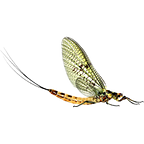In the study of history there’s this idea of ‘emplotment’, or ‘narrativity’.
The ‘linguistic turn’ changed the study of history from Real Research of True Things That Happened to a postmodern relativist discourse where the truth could never be known.
It could not be known because we are not time travellers; and even if we were, we would only be able to see one thing at a time. And even if we were all-seeing, that doesn’t mean what we saw was as true for others as it was for us. There is no objectivity.
Furthermore, evidence we use about the past, which is most often a text of some sort, is not pure truth, it is what somebody wrote; somebody who’s likely to be as amnesiac, myopic, misinformed, mistaken, or mendacious, as we are.
While accepting how little we can know what is true, we can agree that some historical statements are not false. Auschwitz happened.
Yet, while individual statements about the past might be true, the infinite ways we can pick and choose them, and join them into coherent narratives, show us such interpretations are artistic expressive contructions in the present rather than ernest factual reconstructions of the past.
The historian starts at the beginning of the thing he wants to study, but the thing he wants to study is only defined by him, so has no beginning of its own. Same with the end. And the topic of study is not even a thing with boundaries and characteristics. Most often it’s a small number of notable events, with infinitely more contemporaneous events ignored, that have been grouped together by commentators to be called The French Revolution or The Glorious Revolution or…
Does the story of the past even exist to be found? Any story we tell is sure to be too simple to capture the complexity of any set of events we choose to examine. Nobody, not even Hannah Arendt, can explain Auschwitz.
We arrange curiosities like dots on a page, and then draw lines between them, saying “aha! an elephant!” when we could equally draw different lines and get an aeroplane, or perhaps nothing at all. And don’t forget all that space between our dots is only blank because we’ve decided beforehand to ignore the dots which would otherwise be there.
I am fascinated by this idea of apophenia, which is the very human tendancy to find patterns where perhaps none exist. It is an artefact of our neurology, a selective advantage, perhaps key to our world-dominating intelligence, and yet it is flawed.
I say all this because it relates to much I have discussed and want to discuss:
- What is our knowsys? How do we know? What is the difference between reasoned, experienced, received, and felt knowledge? How do we weigh them against each other? How should we calibrate our scepticism? Do they exist in different realms? Some can be described with words, others cannot.
- How does our insistence on imposing pattern, order, narrative, explanation on our experience of the world affect and effect our personal experience of the world. The word comprehend comes from the Latin cum prendare, meaning take within oneself. To comprehend is to appropriate, to seize. We colonise what’s out there and impose our meaning on it in here. By doing so we separate ourselves from the world. And the meaning we impose depends at least as much on our expectations as it does on the evidence of our senses…as so many illusions prove. This is one of Ananke’s restraints. Can we escape this trap? Should we want to? If we could, would this introduce new ills as it cures old ones?
- How does this influence the state of our politics? We observe fake news, policy-based evidence making, increasing complexity, uncertainty and non-linearity under the all-encompassing tent of Surkov’s circus. And it becomes even more urgent to understand emplotment and to judge the discourse about the ‘facts’ as we enter a new age of deep fakes and algorithmic control of our echo chambers.
- While we don’t always understand how AI gets to the conclusions it reaches, we have only taught it to find patterns that we can’t see because the source material is too large for our little minds. What if AI has apophenia? What is the knowledge that transcends connections and probability that we humans sometimes sense, and that AI does not have? How does this influence our evolution? Is the superhuman or the transhuman the one that can escape this limited way of thinking and yet still function in this sublunar realm rather than floating away with the fairies? Will AI develop other ways of knowing that we cannot cum prendare? Capiche?
